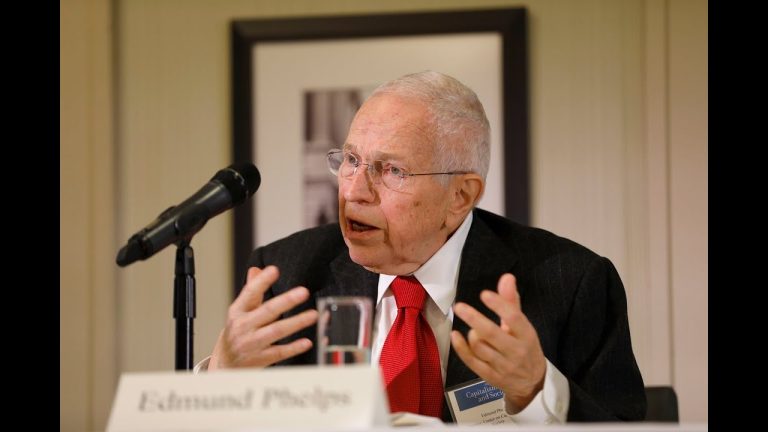Date of Birth: July 26, 1933
Zodiac Sign: Leo
Biography
Edmund Phelps is an acclaimed American economist who was awarded the Nobel Memorial Prize in Economic Sciences in 2006. Born in Evanston, Illinois, Phelps grew up in Hastings-on-Hudson, New York. He graduated from Amherst College in 1955 with a B.A. in Economics and earned his Ph.D. from Yale University in 1959. Phelps is best known for his work on the microeconomic foundations of macroeconomics, particularly his analysis of intertemporal trade-offs in employment and inflation. His influential “Expectations-Augmented Phillips Curve” introduced the concept that long-term unemployment is not solely determined by inflation, but also by expectations and policies. Over his distinguished career, Phelps has held teaching positions at several prestigious institutions, including the University of Pennsylvania and Columbia University, where he currently serves as the Director of the Center on Capitalism and Society. His work has had a profound impact on economic policy and theory, influencing both academics and policymakers around the globe.
5 Interesting Facts about Edmund Phelps
1. Edmund Phelps won the Nobel Prize in Economic Sciences in 2006 for his analysis of intertemporal trade-offs in macroeconomic policy.
2. He introduced the concept of the “Golden Rule” level of capital accumulation, which has become a cornerstone in growth theory.
3. Phelps has been a vocal critic of the overreliance on mathematical models in economics, advocating instead for a broader understanding of human behavior.
4. He has published several influential books, including “Designing Inclusion” and “Mass Flourishing: How Grassroots Innovation Created Jobs, Challenge, and Change.”
5. Phelps is a founding director of the Center on Capitalism and Society at Columbia University, which explores the dynamics of modern capitalism.
5 Most Interesting Quotes from Edmund Phelps
1. “Economic justice is not merely a matter of distribution of wealth but also of the opportunities available to people.”
2. “Innovation is the source of our modern prosperity.”
3. “The pursuit of happiness is deeply tied to the nature of work and the opportunities it provides.”
4. “Capitalism is not just an economic system but a cornerstone of a free and dynamic society.”
5. “Economic theory must be grounded in the realities of human life.”
Highest Net Worth Achieved
Edmund Phelps’ highest net worth is estimated to be around $5 million, accumulated through his academic positions, publications, and awards.
Children
Edmund Phelps has three children: Amanda, Andrew, and Olivia Phelps. His family has remained somewhat private, with limited public information available about his children’s personal lives and careers.
Relevant Links
2. [Columbia University Profile](https://econ.columbia.edu/economics-directory/edmund-phelps/
3. [Center on Capitalism and Society](http://capitalism.columbia.edu/
5. [Interview with Edmund Phelps on Economic Policy](https://www.youtube.com/watch?v=0vYyqPjQ6ZE
